Meg Lipke
Meg Lipke was born in 1969 in Portland, Oregon and was raised in Burlington, Vermont and Cheshire, England. She received her MFA from Cornell University and has taught at The University of Northern Iowa, Cornell University, and Pratt Institute in Brooklyn. Her work has been exhibited nationally and internationally and has been reviewed in Art in America, the Village Voice, the New York Times and many online publications. She lives and works in the Hudson Valley, New York and is represented by Broadway Gallery in NYC.
Question:
In an essay from 2018, Maxwell Taylor-Miller writes “Meg Lipke is a painter unconcerned with the rules of painting, but deeply invested in its possibilities.” Clearly you are invested in the possibilities of painting but are you unconcerned with the rules? From my viewpoint, you revel in using the entire grab bag of the tricks of the trade. The repetition of line, rectangle, triangle, pattern, the contrasting palettes of richly hued colors in an excited harmony seem more like an exploitation of the rules of painting than a lack of concern. I see deep pleasure in the limitations of painting and sculpture, in an expanded set of rules. Rather than rule-breaking are you rule-mending? For me there is little of rebellion in this work, none of the “epater le bourgeois” of the aged avant-garde. Their “fuck you” towards their audience replaced by “love you”. Is that possibly the real rule-breaking?
Answer:
Yes; what I have been trying to do is expand the preconceptions of painting, both in the making of the work and hopefully in the reception of it , but still evoke the realm of painting by using its language and its site, the wall. By cutting through the cloth, I am making the blank wall or the idea of emptiness a player in the conversation.
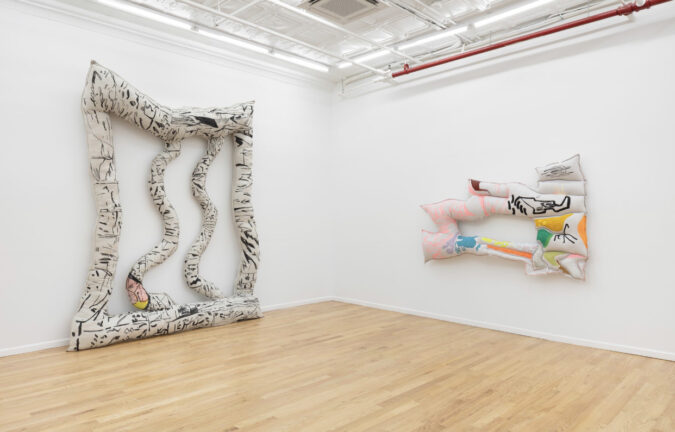
Meg Lipke; installation view at Broadway Gallery, January 2021; black and White Vibrations and Big Side Guy, both acrylic on canvas with polyester fill and thread
This sets up an unexpected figure/ground relationship and subverts the idea of the intact picture plane as a (metaphorical) window, while being sometimes an actual window or portal to the wall. Because I love the history of ‘Painting’ there is something deeply satisfying, slightly tragic and also funny about doing this. I am filling the painting with a soft structure because I wanted to find a way around the idea of a traditional rigid support in favor of pliability and a way of connecting the painting to my body/ the viewer’s body/the abstract idea of the BODY having scars, history, memory.
They are exciting to make because I have moved away from the flat rectangle of Painting’s history, and because I don’t know exactly how they are going to work until they’re done. They are confrontational and familiar and, on a large scale, become anthropomorphized because they have posture – slumping, wrinkling, settling and becoming architectural because of their dwarfing size. I do hope for an element of shock or surprise in the works that are monumental; a feeling that I hope is physical in the viewer.
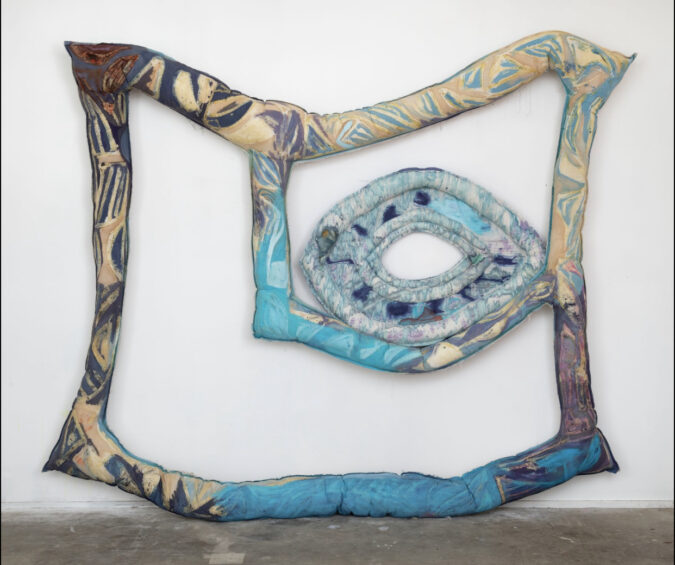
Meg Lipke, Blue Eye Frame, 2020 Acrylic on muslin and silk with polyester fill and thread, 96 x 118 x 7 in
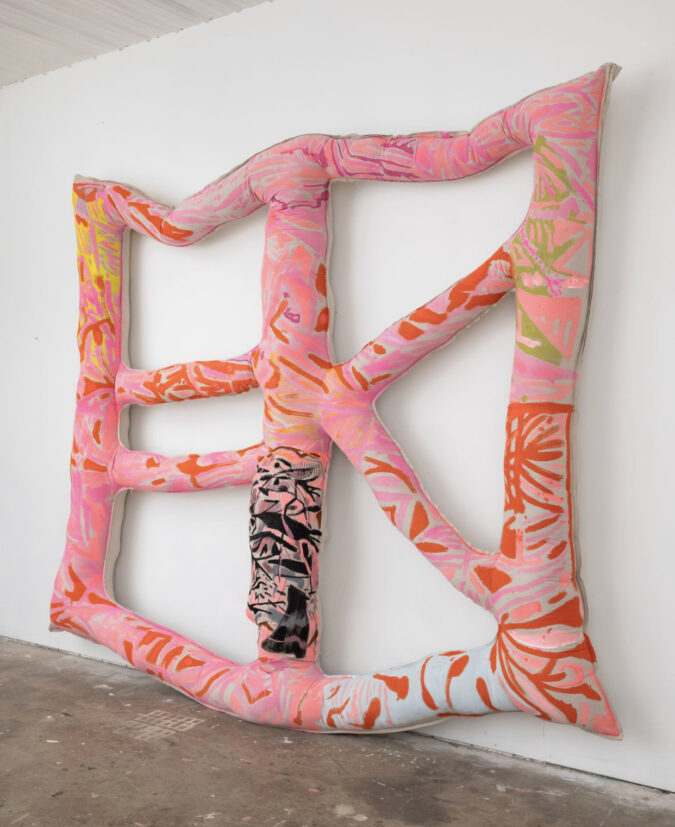
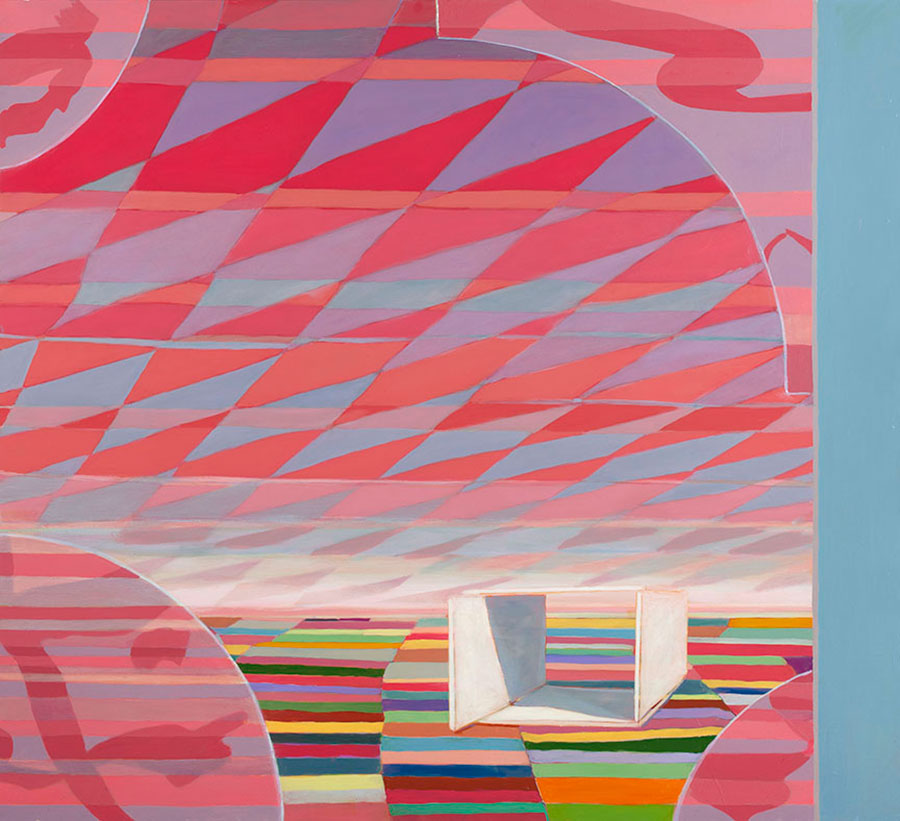
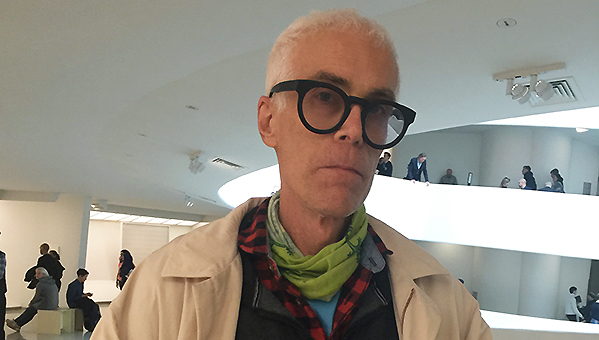
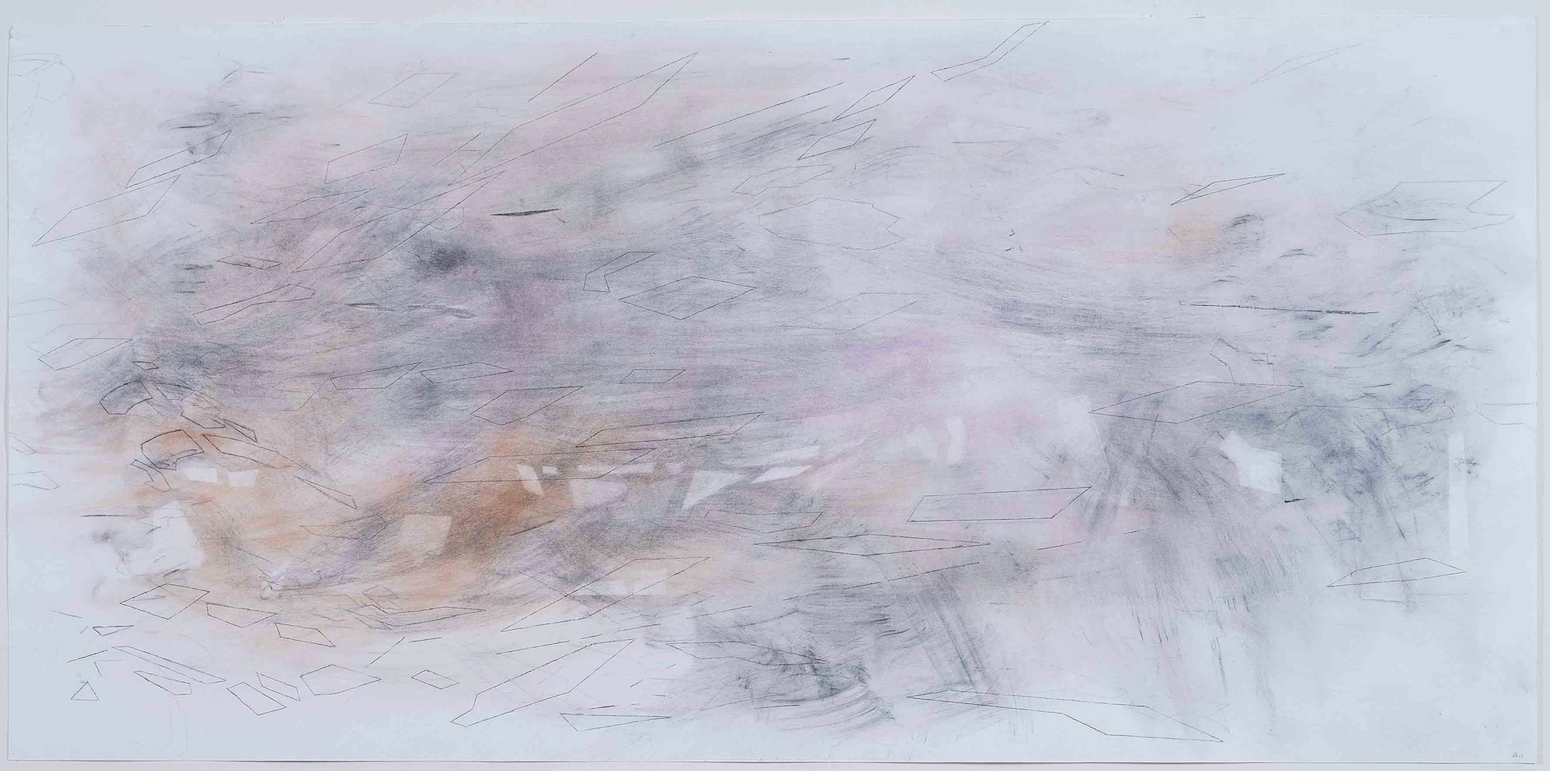
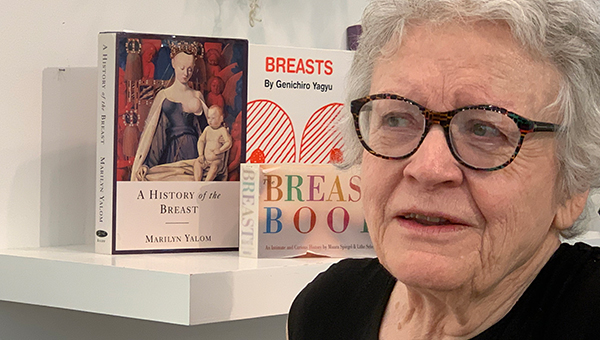
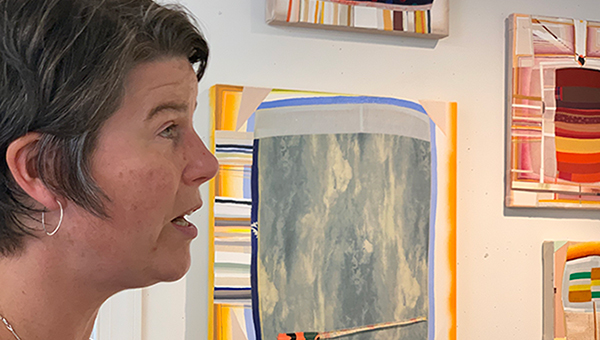

I immensely appreciate Mr. Taylor’s deep appreciation and understanding of your work. If he wasn’t an art critic he could be a therapis extraordinaire! And your response is equally deeply rooted in the tradition of creativity. You express your ideas exquisitely and bring them up close and personal to us mere mortals. Your work is audacious and magnificent and I see you are you creating what you invisiom in your heart. Bravo